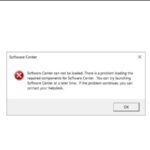History Masters Programs Online: A Comprehensive Guide for Aspiring Historians
For history enthusiasts seeking to deepen their knowledge and pursue advanced careers, an online Master’s degree program offers a flexible and accessible path. This comprehensive guide provides a detailed exploration of online history masters programs, covering program types, admissions requirements, career prospects, and key factors to consider when choosing the right program for you.
What is a Master’s Degree in History?
A Master of Arts (MA) in History is a postgraduate degree designed to provide students with advanced knowledge and research skills in a specific historical field. These programs typically involve in-depth study of historical periods, events, cultures, or methodologies. Earning a Master’s in History can open doors to various career paths, including research, teaching, archival work, museum curation, and more.
Types of Online History Masters Programs
Online history masters programs come in a variety of formats to cater to different learning styles and career goals. Here are some common types:
- Traditional MA in History: These programs closely resemble traditional on-campus programs, offering a comprehensive curriculum in historical theory, research methods, and a specialization area.
- MA in Public History: This program focuses on applying historical knowledge and skills to public settings, such as museums, archives, historical societies, and government agencies.
- MA in Digital History: This program emphasizes the use of digital tools and technologies for historical research, analysis, and presentation.
- MA in History Education: This program prepares graduates for careers as history teachers at the secondary or post-secondary level.
Admissions Requirements for Online History Masters Programs
The admissions requirements for online history masters programs vary depending on the institution and program. However, common requirements include:
- Bachelor’s Degree: A bachelor’s degree in history or a related field is typically required. Some programs may accept applicants with degrees in other disciplines, especially those with a strong background in humanities or social sciences.
- Transcripts: Submit official transcripts from all previously attended institutions to demonstrate academic performance.
- Letters of Recommendation: Provide letters of recommendation from professors or other professionals who can attest to your academic abilities, research potential, and suitability for graduate study.
- Personal Statement: Compose a compelling personal statement outlining your academic goals, research interests, and motivations for pursuing a Master’s degree in history.
- GRE Scores: Some programs may require Graduate Record Examination (GRE) scores, although this is becoming less common for online programs. Check individual program requirements for specific GRE score expectations.
- Writing Sample: Submit a writing sample to demonstrate your research, analytical, and writing skills. The sample can be a research paper, thesis, or other academic writing assignment.
Curriculum and Coursework in Online History Masters Programs
The curriculum for online history masters programs typically covers a wide range of topics, including:
- Historical Theory and Methodology: Explore fundamental concepts, theories, and methods of historical research.
- Historiography: Analyze the evolution of historical interpretation and the work of influential historians.
- Research Skills: Develop advanced research skills, including archival research, source analysis, and data interpretation.
- Writing and Communication: Improve writing and communication skills through seminar papers, research projects, and presentations.
- Specialization Area: Focus on a specific historical period, region, theme, or methodology based on individual interests and career goals.
- Capstone Project or Thesis: Conduct independent research and write a significant research paper or thesis on a chosen topic.
Advantages of Online History Masters Programs
Online history masters programs offer numerous advantages for students seeking a flexible and convenient educational path:
- Flexibility: Learn at your own pace and on your own schedule, accommodating work, family, or other commitments.
- Accessibility: Access high-quality programs from anywhere with an internet connection, regardless of geographical location.
- Affordability: Online programs often have lower tuition rates and fewer expenses compared to traditional on-campus programs.
- Diverse Learning Environment: Connect with students and faculty from diverse backgrounds and perspectives.
- Technology-Enhanced Learning: Utilize online resources, platforms, and tools to enhance learning experiences.
Career Prospects with a History Masters Degree
A Master’s in History can open doors to a variety of rewarding careers in academia, research, archives, museums, and other fields. Some common career paths include:
- Historian: Conduct research, write scholarly articles, and publish books on historical topics.
- Archivist: Manage and preserve historical documents, photographs, and artifacts.
- Museum Curator: Research, select, and interpret historical objects and artifacts for display in museums.
- Librarian: Provide research assistance and manage library collections, including historical materials.
- Teacher: Teach history at the secondary or post-secondary level.
- Public Historian: Apply historical knowledge and skills to public settings, such as museums, historical societies, and government agencies.
- Journalist or Writer: Use historical knowledge to inform and educate the public through articles, books, and other media.
- Researcher: Conduct research for historical projects, government agencies, or private organizations.
Factors to Consider When Choosing an Online History Masters Program
Choosing the right online history masters program requires careful consideration of several factors:
- Program Focus: Identify your specific interests and career goals. Consider whether you are interested in a traditional MA in History, a specialized program, or a program focused on public history or digital history.
- Faculty Expertise: Research the faculty members to ensure they have expertise in your areas of interest and a strong reputation in the field.
- Course Curriculum: Review the course descriptions to ensure the program covers the topics you find most relevant and challenging.
- Accreditation: Ensure the program is accredited by a reputable organization, such as the Higher Learning Commission (HLC) or the Middle States Commission on Higher Education (MSCHE). Accreditation signifies quality and ensures the program meets rigorous academic standards.
- Technology and Support: Evaluate the program’s technological resources, including online learning platforms, course materials, and technical support services.
- Student Support Services: Consider the availability of student support services, such as academic advising, career counseling, and writing assistance.
- Tuition and Fees: Compare tuition rates and fees across different programs to find the most affordable option that meets your financial needs.
- Financial Aid and Scholarships: Explore the availability of financial aid options, such as scholarships, grants, and loans.
- Career Services: Determine whether the program offers career services, including job placement assistance, networking opportunities, and career counseling.
- Program Reviews and Reputation: Read program reviews from current and former students to gain insights into the program’s quality, faculty, and student experience.
Conclusion
Online history masters programs provide aspiring historians with a flexible, accessible, and affordable path to advanced knowledge and rewarding careers. By carefully considering the program type, admissions requirements, curriculum, career prospects, and key factors discussed in this guide, you can choose the right program to achieve your academic and professional goals. Embrace the opportunity to explore history in-depth, develop critical thinking skills, and contribute to a deeper understanding of the past.







